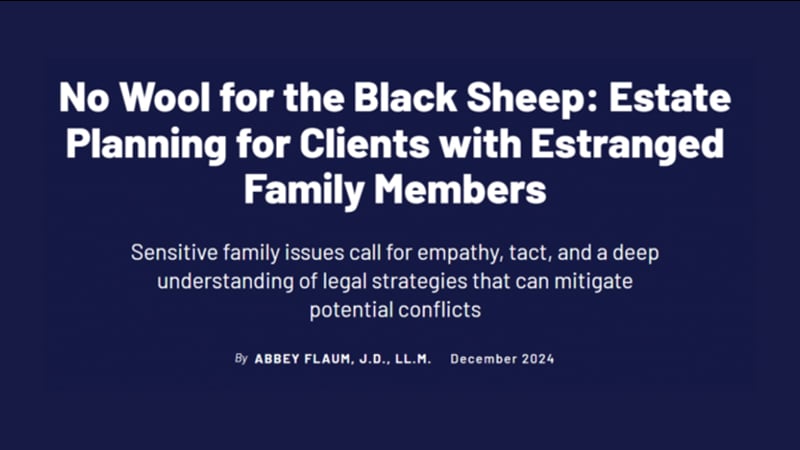Abbey Flaum, J.D., LL.M., is principal and family wealth strategist at Homrich Berg. Abbey applies the company’s holistic approach to each client’s planning, and she provides clients with ongoing, personalized guidance on tax-efficient wealth, business, and estate planning strategies.
Although families often try to portray themselves like Norman Rockwell paintings in society, the unfortunate truth is so many of those smiles you scroll through on Instagram are masking feelings of anger, hurt, resentment, or frustration. More families than you think have at least one family member who marches to the beat of their own drum—the “black sheep,” a person who falls victim to substances, holds extreme beliefs, is a spendthrift, or who just does not have a good relationship with anyone. Research shows that as many as one in four people have experienced estrangement from at least one family member.1
When engaging in estate planning, these underlying family dynamics may significantly shape the structure of the client’s plan, but few clients walk into their adviser’s office and immediately disclose, “My son has a substance abuse problem, and I’m worried about what will happen if I leave him a large inheritance.” More commonly, clients keep their family conflicts hidden, either out of shame or simply because they do not realize the importance of disclosing this information for the purposes of estate planning.
How do advisers encourage clients to speak freely about such sensitive subjects? This process begins with building a relationship of trust and creating a safe, judgment-free space for clients to share personal and sometimes painful details about their family dynamics.
- Schumer Chapman, Fern. 2024, February 19. “What Research Tells Us About Family Estrangement.” Psychology Today. www.psychologytoday.com/us/blog/brothers-sisters-strangers/202402/statistics-that-tell-the-story-of-family-estrangement ↩︎


